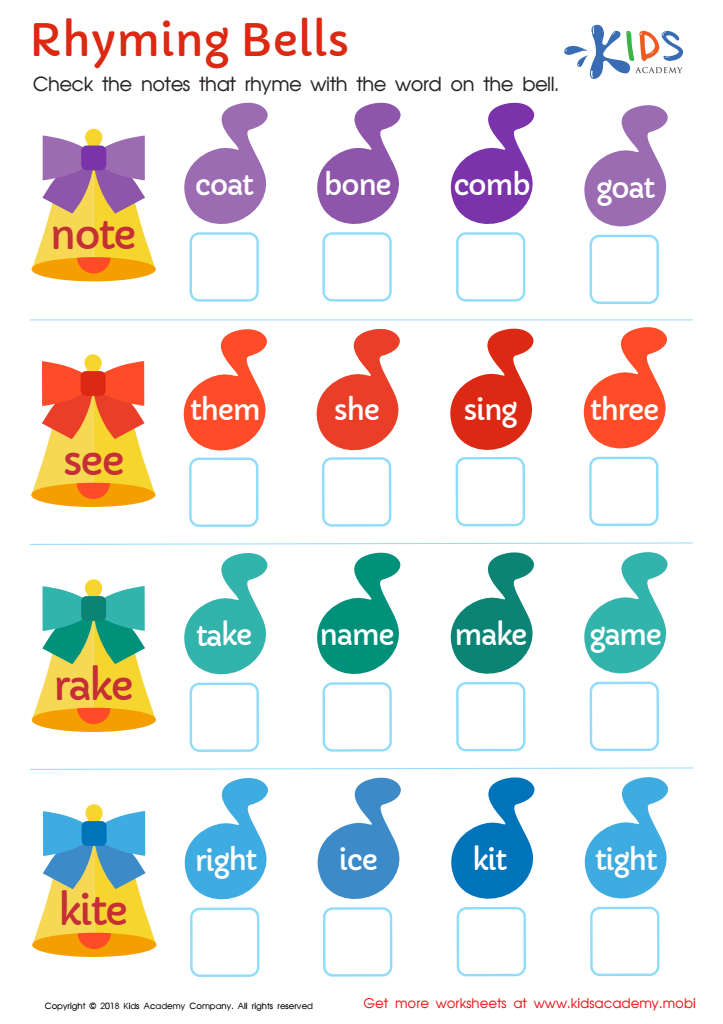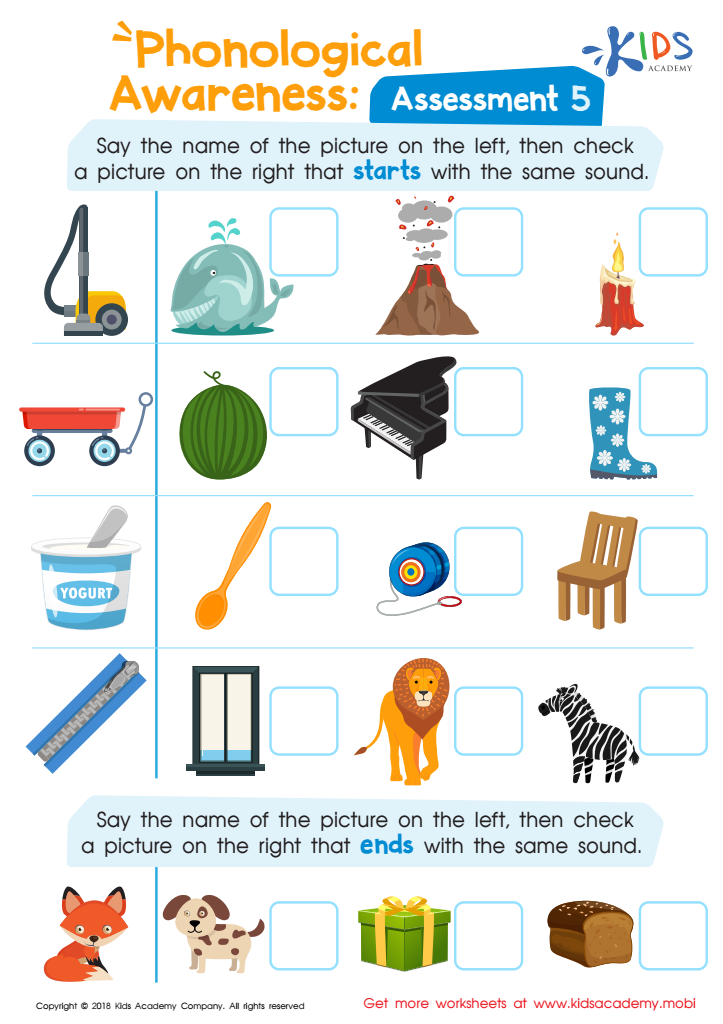Rhyming skills development Alphabet Worksheets for Ages 4-7
5 filtered results
-
From - To
Boost rhyming skills for young learners with our Alphabet Worksheets for Ages 4-7. These engaging printables from Kids Academy focus on developing phonemic awareness through fun and interactive exercises. Each worksheet is designed to help children recognize and create rhyming words, enhancing their early reading skills. With colorful illustrations and easy-to-follow instructions, kids will delight in learning phonics while reinforcing their alphabet knowledge. Perfect for preschoolers and early elementary students, these worksheets make learning to rhyme an enjoyable adventure. Encourage your child's literacy journey today with our expertly crafted educational resources.


Rhyming Words Rhyming Worksheet


Rhyming Bells Worksheet


First Words: Picture Rhymes Worksheet


Phonological Awareness: Assessment 5 Worksheet
Rhyming skills and alphabet knowledge are foundational elements in early literacy development for children aged 4-7. For starters, rhyming helps young learners to recognize and predict sound patterns in language, which paves the way for better phonemic awareness – the ability to hear, identify, and manipulate individual sounds in spoken words. Phonemic awareness is crucial for decoding words during reading, and it's a strong predictor of reading success.
Moreover, learning the alphabet allows children to understand the relationship between letters and sounds, an essential pre-reading skill. Mastery of alphabetic knowledge facilitates word recognition, spelling, and the overall ability to read seamlessly. When parents and teachers integrate rhyming with alphabet lessons, they make learning more engaging and fun, holding the child’s interest and enthusiasm. For example, using rhyming songs or games about letters can make repetitive practice enjoyable.
Supporting rhyming and alphabet learning at an early age also fosters creativity and cognitive development. Children begin to play with language by inventing their rhymes or merging sounds, enhancing their linguistic abilities. Thus, investing time and effort into these skills helps build a robust foundation for all future literacy endeavors, ensuring children are well-prepared to thrive academically.
 Assign to My Students
Assign to My Students





















